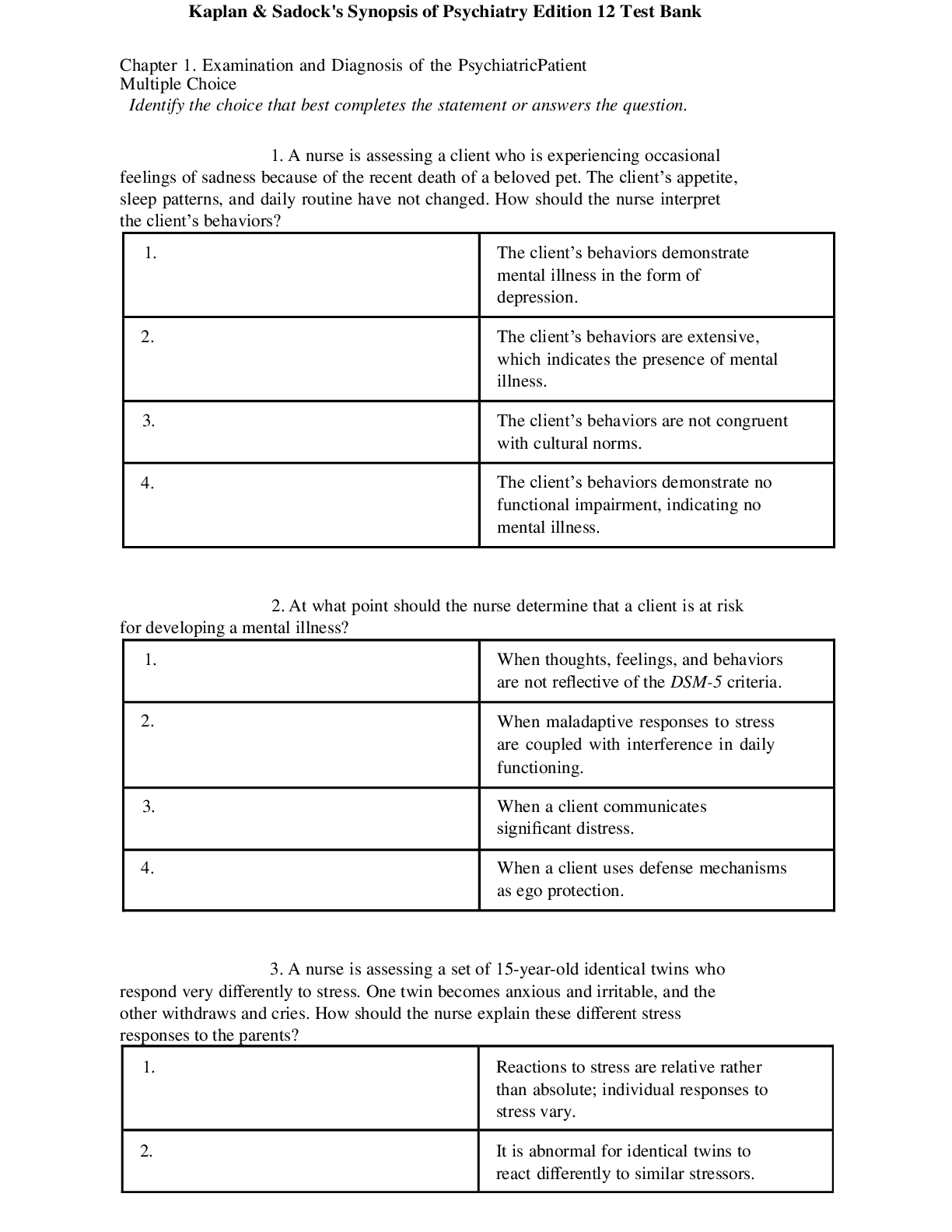*NURSING > TEST BANK > Study Notes for, The Patient-Doctor Relationship Kaplan & Sadock's Synopsis of Psychiatry: Behaviora (All)
Study Notes for, The Patient-Doctor Relationship Kaplan & Sadock's Synopsis of Psychiatry: Behavioral Sciences/Clinical Psychiatry, 10thE__Rated A
Document Content and Description Below
Study Notes for, The Patient-Doctor Relationship Kaplan & Sadock's Synopsis of Psychiatry: Behavioral Sciences/Clinical Psychiatry, 10thEd The Patient-Doctor Relationship Kaplan & Sadock's Synopsis of... Psychiatry: Behavioral Sciences/Clinical Psychiatry, 10th Edition EDIT Dr liza 140 366 660RAPPORT An effective relationship is characterized by good rapport. Rapport is the spontaneous, conscious feeling of harmonious responsiveness that promotes the development of a constructive therapeutic alliance. It implies an understanding and trust between the doctor and the patient. Frequently, the doctor is the only person to whom the patients can talk about things that they cannot tell anyone else. Most patients trust their doctors to keep secrets, and this confidence must not be betrayed. Patients who feel that someone knows them, understands them, and accepts them find that a source of strength. In his essay,Caring for the Patient Francis Peabody M D (1881-1927) a6 STRATEGIES RAPPORT Ekkehard Othmer and Sieglinde Othmer defined the development of rapport as encompassing six strategies: (1) putting patients and interviewers at ease; (2) finding patients' pain and expressing compassion; (3) evaluating patients' insight and becoming an ally; (4) showing expertise; (5) establishing authority as physicians and therapists; and (6) balancing the roles of empathic listener, expert, and authority. As part of a strategy for increasing rapport, they developed a checklist (Table 1-1) that enables interviewers to recognize problems and refine their skills in establishing rapport. Empathy Empathy is a way of increasing rapport. It is an essential characteristic of psychiatrists, but it is not a universal human capacity. An incapacity for normal understanding of what other people are feeling appears to be central to certain personality disturbances, such as antisocial and narcissistic personality disorders. Although empathy probably cannot be created, it can be focused and deepened through training, observation, and self-reflection. It manifests in clinical work in a variety of ways. An empathic psychiatrist may anticipate what is felt before it is spoken and can often help patients articulate what they are feeling. Nonverbal cues, such as body posture and facial expression, are noted. Patients' reactions to the psychiatrist can be understood and clarified.Transference Transference is generally defined as the set of expectations, beliefs, and emotional responses that a patient brings to the patient doctor relationship. They are based not necessarily on who the doctor is or how the doctor acts in reality but, rather, on repeated experiences the patient has had with other important authority figures throughout life. Transferential Attitudes The patient's attitude toward the physician is apt to be a repetition of the attitude he or she has had toward authority figures. The patient's attitude can range from one of realistic basic trust, with an expectation that the doctor has P.2 the patient's best interest at heart, through one of overidealization and even eroticized fantasy to one of basic mistrust, with an expectation that the doctor will be contemptuous and potentially abusive. Countertransference Just as the patient brings transferential attitudes to the patient-doctor relationship, doctors themselves often have countertransferential reactions to their patients. Countertransference can take the form of negative feelings that are disruptive to the patient-doctor relationship, but it can also encompass disproportionately positive, idealizing, or even eroticized reactions to patients. Just as patients have expectations for physicians for example, competence, lack of exploitation,Models of Interaction Between Doctor and Patient The paternalistic model. In a paternalistic relationship between the doctor and patient, it is assumed that the doctor knows best. He or she will prescribe treatment, and the patient is expected to comply without questioning. Moreover, the doctor may decide to withhold information when it is believed to be in the patient's best interests. In this model, also called the autocratic model, the physician asks most of the questions and generally dominates the interview. The informative model. The doctor in this model dispenses information. All available data are freely given, but the choice is left wholly up to the patient. For example, doctors may quote 5-year survival statistics for various treatments of breast cancer and expect women to make up their own minds without suggestion or interference from them. This model may be appropriate for certain one-time consultations where no established relationship exists and the patient will be returning to the regular care of a known physician. At other times, the informative model places the patient in an unrealistically autonomous role and leaves him or her feeling the doctor is cold and uncaring. The interpretive model. Doctors who have come to know their patients better and understand something of the circumstances of their lives, their families, their values, and their hopes and aspirations, are better able to make recommendations that take into account the unique characteristics of an individual patient. A sense of shared decision-making is established as the doctor presents and discusses alternatives, with the patient's participation, to find the one that is best for that particular person. The doctor in this model does not abrogate the responsibility for making decisions, but is flexible, and is willing to consider question and alternative suggestions. The deliberative model. The physician in this model acts as a friend or counselor to the patient, not just by presenting information, but in actively advocating a particular course of action. The deliberative approach is commonly used by doctors hoping to modify injurious behavior, for example, in trying to get their patients to stop smoking or lose weight. Table 1-2 Assessment of Individual Illness Behavior Prior illness episodes, especially illnesses of standard severity (childbirth, renal stones, surgery) Cultural degree of stoicism Cultural beliefs concerning the specific problem Personal meaning of or beliefs about the specific problem Particular questions to ask to elicit the patient's explanatory model: What do you call your problem? What name does it have? What do you think caused your problem? Why do you think it started when it did? What does your sickness do to you? What do you fear most about your sickness? What are the chief problems that your sickness has caused you? What are the most important results you hope to i t tment?1. Functions Determining the nature of the problem Objectives To enable the clinician to establish a diagnosis or recommend further diagnostic procedures, suggest a course of treatment, and predict the nature of the illness [Show More]
Last updated: 1 year ago
Preview 1 out of 184 pages
Instant download

Buy this document to get the full access instantly
Instant Download Access after purchase
Add to cartInstant download
Reviews( 0 )
Document information
Connected school, study & course
About the document
Uploaded On
Aug 28, 2021
Number of pages
184
Written in
Additional information
This document has been written for:
Uploaded
Aug 28, 2021
Downloads
0
Views
63



.png)

.png)
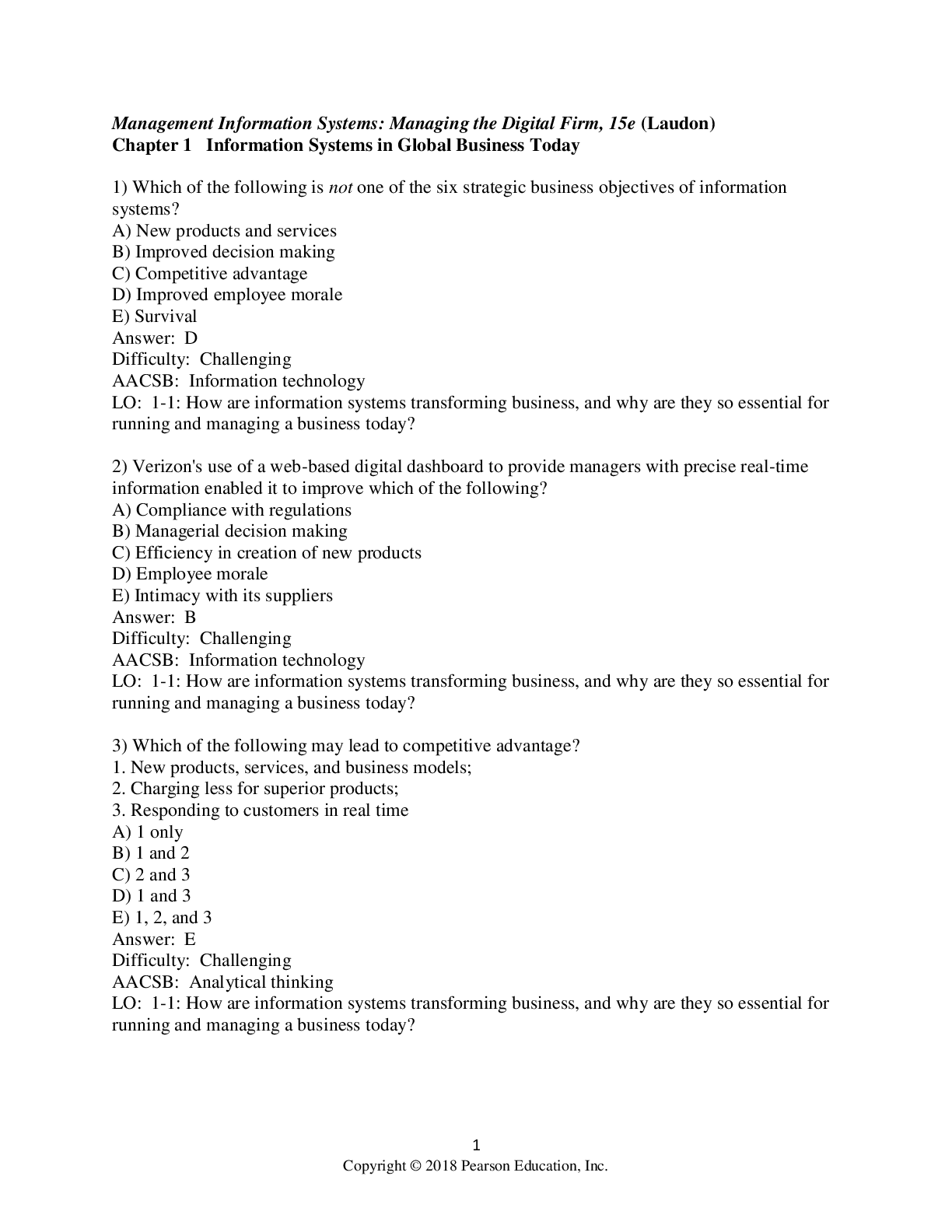
.png)
.png)
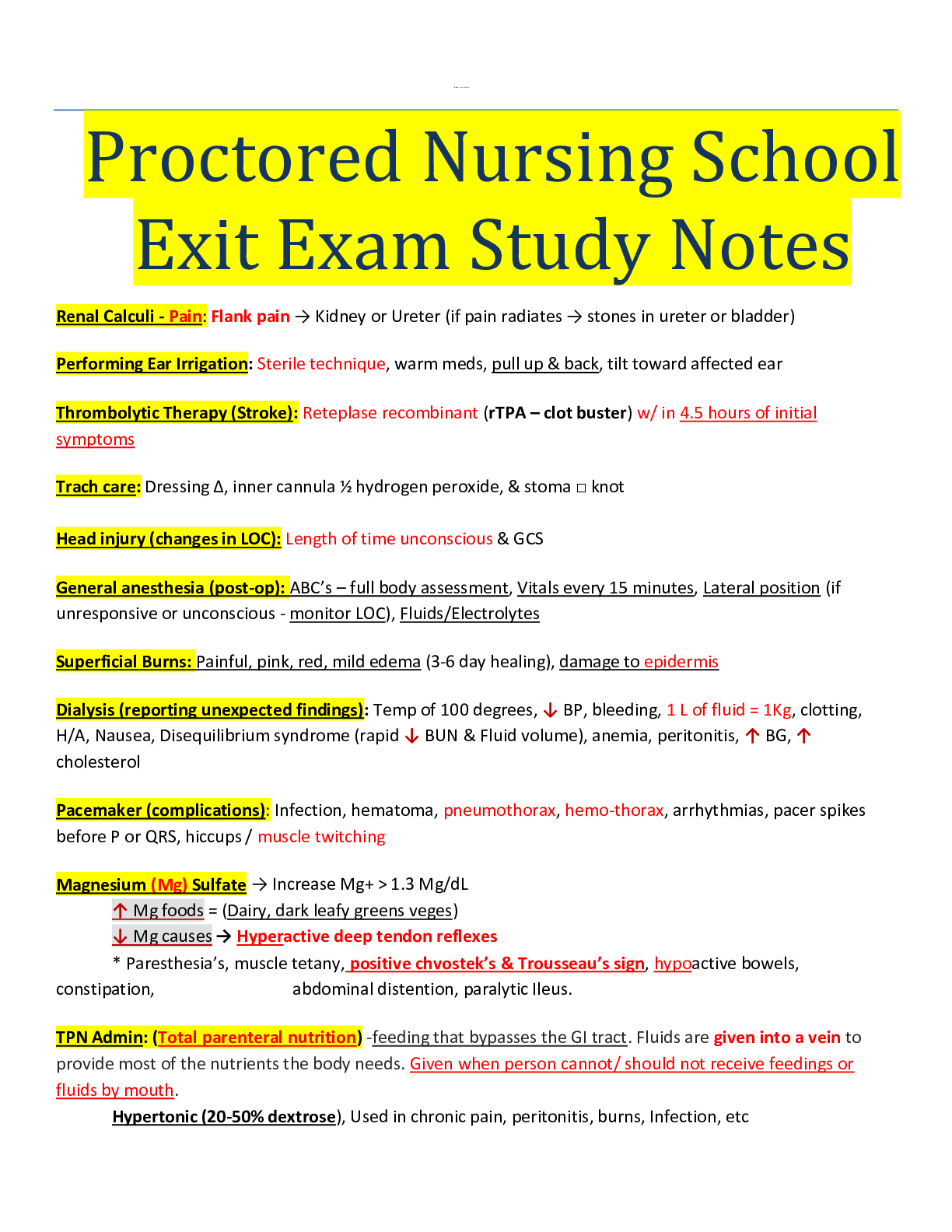
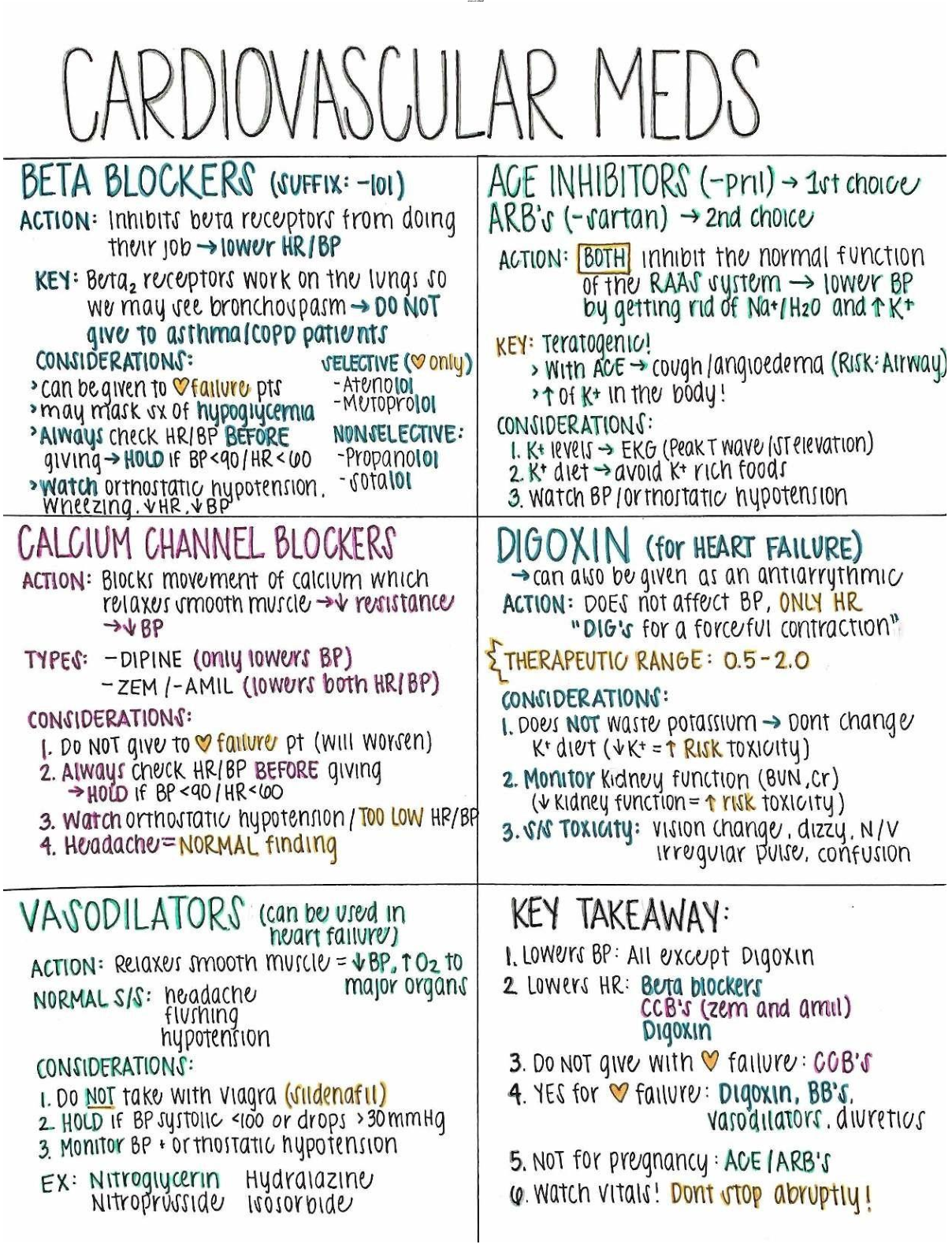
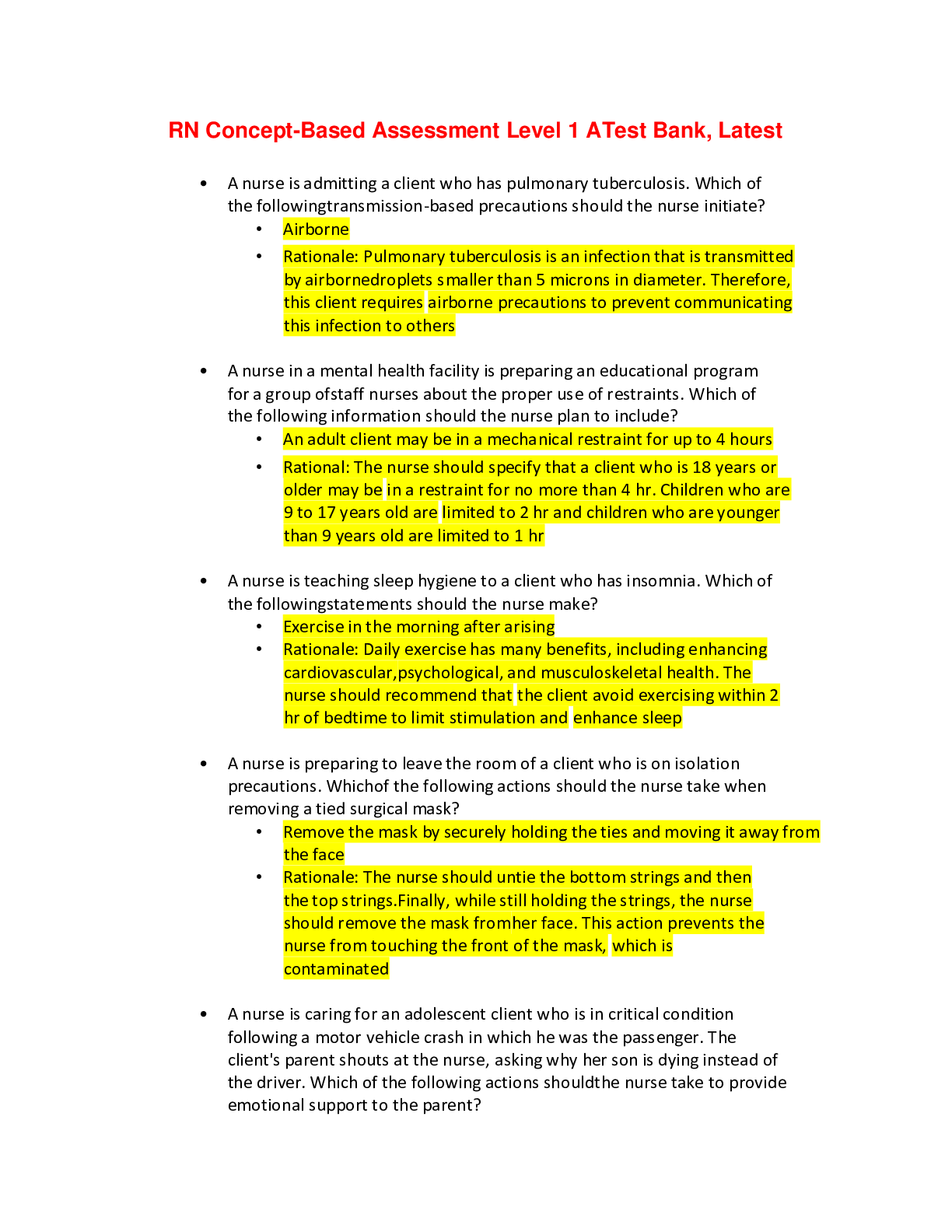

.png)
